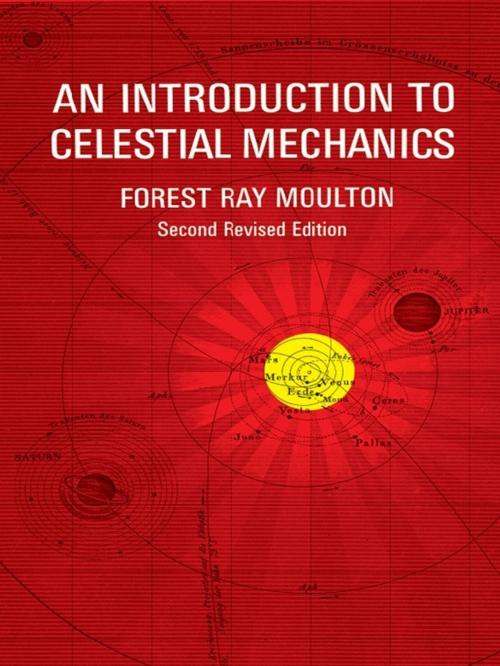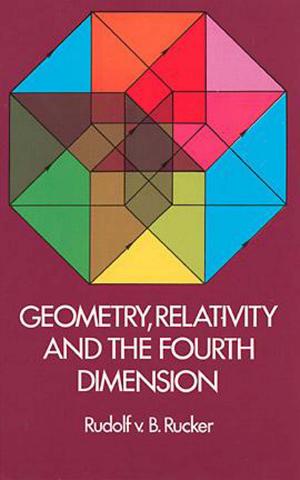| Author: | Forest Ray Moulton | ISBN: | 9780486140681 |
| Publisher: | Dover Publications | Publication: | April 26, 2012 |
| Imprint: | Dover Publications | Language: | English |
| Author: | Forest Ray Moulton |
| ISBN: | 9780486140681 |
| Publisher: | Dover Publications |
| Publication: | April 26, 2012 |
| Imprint: | Dover Publications |
| Language: | English |
An unrivaled text in the field of celestial mechanics, Moulton's theoretical work on the prediction and interpretation of celestial phenomena has not been superseded. By providing a general account of all parts of celestial mechanics without an over-full treatment of any single aspect, by stating all the problems in advance, and, where the transformations are long, giving an outline of the steps which must be made, and by noting all the places where assumptions have been introduced or unjustified methods employed, Moulton has insured that his work will be valuable to all who are interested in the subject.
The text is divided into ten chapters which progress logically in terms of the difficulty of their subject matter. They are: Fundamental Principles and Definitions, Rectilinear Motion, Central Forces, The Potential and Attractions of Bodies, The Problem of Two Bodies, The Determination of Orbits, The General Integrals of the Problem of n Bodies, The Problem of Three Bodies, Perturbations ― Geometrical Considerations, and Perturbations ― Analytical Method. Important topics cove red include general equations, motion of falling particles, the heat of the sun, simultaneous differential equations, examples where J is a function of the coordinates alone, the universality of Newton's law, determination of the orbit from the law of force, attractions of simple solids, potential and attractions of simple bodies and ellipsoids, Ivory's method and level surfaces, elements of orbits, expansions and positions in orbits, transformations of coordinates, the Laplacian and Gaussian methods of determining orbits, motion of center of mass and area integrals, motion of the infinitesimal body, surfaces of zero relative velocity, effects of the components of the disturbing force, lunar theory, method of computing perturbations, and the perturbative function.
Each chapter is followed by a historical sketch and bibliography pertaining to that subject. Over 200 problems appear at key points in the text, many of them answered.
An unrivaled text in the field of celestial mechanics, Moulton's theoretical work on the prediction and interpretation of celestial phenomena has not been superseded. By providing a general account of all parts of celestial mechanics without an over-full treatment of any single aspect, by stating all the problems in advance, and, where the transformations are long, giving an outline of the steps which must be made, and by noting all the places where assumptions have been introduced or unjustified methods employed, Moulton has insured that his work will be valuable to all who are interested in the subject.
The text is divided into ten chapters which progress logically in terms of the difficulty of their subject matter. They are: Fundamental Principles and Definitions, Rectilinear Motion, Central Forces, The Potential and Attractions of Bodies, The Problem of Two Bodies, The Determination of Orbits, The General Integrals of the Problem of n Bodies, The Problem of Three Bodies, Perturbations ― Geometrical Considerations, and Perturbations ― Analytical Method. Important topics cove red include general equations, motion of falling particles, the heat of the sun, simultaneous differential equations, examples where J is a function of the coordinates alone, the universality of Newton's law, determination of the orbit from the law of force, attractions of simple solids, potential and attractions of simple bodies and ellipsoids, Ivory's method and level surfaces, elements of orbits, expansions and positions in orbits, transformations of coordinates, the Laplacian and Gaussian methods of determining orbits, motion of center of mass and area integrals, motion of the infinitesimal body, surfaces of zero relative velocity, effects of the components of the disturbing force, lunar theory, method of computing perturbations, and the perturbative function.
Each chapter is followed by a historical sketch and bibliography pertaining to that subject. Over 200 problems appear at key points in the text, many of them answered.















